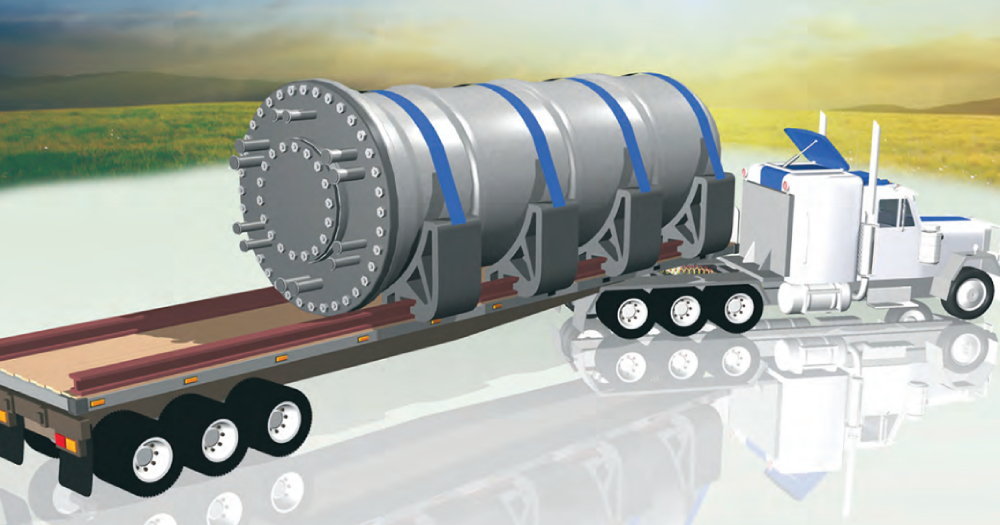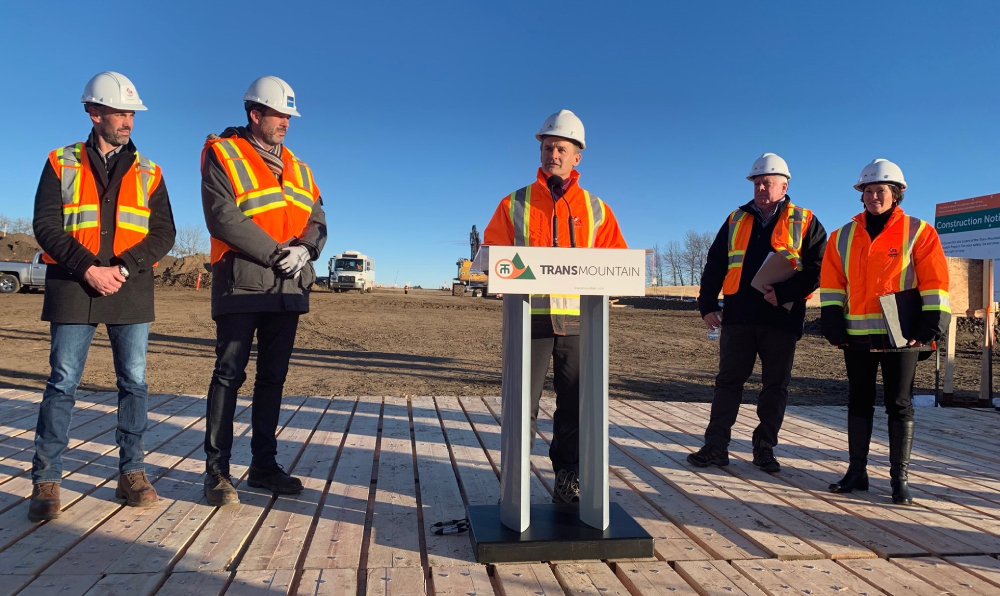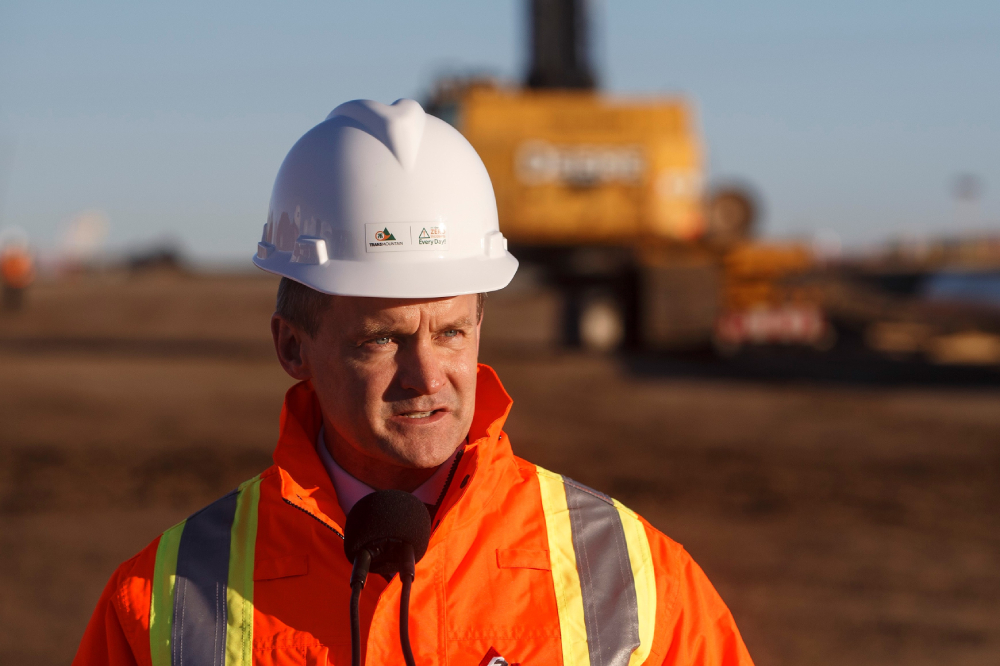Seamus O’Regan became the minister in charge of Canada’s energy future after the 2019 election — and therefore will be recorded by history as a hero or villain in meeting the global climate crisis. He knows it well, given that Canada currently is the fourth largest oil power.
As he told The Tyee, “Every time I’m on a Zoom meeting with other countries on energy matters, it’s always Tier One, Screen One. Why? Because it’s Canada. We’re known as one of the greatest oil producers on Elarth. Alberta and Newfoundland see themselves as oil developers, but Canada does not. But we are. Getting this right is crucial. It’s life. It’s what we’ve been given.”
Canada of course has been given many other things. A green energy tech sector with great potential. A fervent and effective movement of climate crisis activism. A polarized politics that Premier Jason Kenney exploits to contend that any blow against fossil fuel production is an assault on Alberta. Pressing demands for First Nations control over resources on their claimed territories. And a Trudeau government goal announced in December to lower Canada’s greenhouse gas emissions to 30 per cent below 2005 levels by 2030 — and to achieve net zero emissions by 2050.
In the face of all these givens, Natural Resources Minister Seamus O’Regan has said it will be oilsands revenues that pay for Canada’s “messy” transition to clean energy. “There is no way we are reaching net-zero without Alberta,” O’Regan told the Financial Times in August of last year, referring to the country’s 2050 emissions target.
You might say the 50-year-old O’Regan is promoting a “we can have everything” agenda. Canada, he professes, can have accelerating production in its oilsands. Can build a cutting-edge hydrogen energy infrastructure. And even have a revived nuclear energy industry. Blend it all together and yes, he assures, Canada will meet its Paris Accord pledges. Neither we nor O’Regan will be cast as villains in humanity’s fight for survival on a heating Earth.
On the subject of the constant friction between environmentalists who want to see the end of the oil era, and political leaders like Kenney who want to see the fossil fuel industry expanded, O’Regan says the country can’t afford to decide the issue on ideology. Canada has to be practical to survive, just as it has always been in his home province of Newfoundland and Labrador. And that means not only embracing the fact that Canada is the fourth largest oil producer in the world, but also following best practises.
O’Regan insists that doesn’t mean deserting the crucial goal of dramatically lowering the country’s carbon dioxide emissions.
“Most Canadians have the common sense to realize we have to do both, put a price on pollution, and buy the Trans-Mountain pipeline. We managed to draw oil out of sand. That’s incredible. We need these people. We have a common mission to get to net zero by 2050, but in a way that will leave no one behind.”
The Trudeau government recently invested $1.5 billion in a hydrogen strategy for Canada, aimed at increasing the production and use of low-carbon and zero emission fuels across all sectors of the economy.
But O’Regan has also said that Canada can’t reach net zero without nuclear energy playing a part. In particular, the federal government has been looking into the developing technology of small modular nuclear reactors, or SMRs, as part of a long-term means of reducing emissions.

As University of British Columbia school of public policy professor M.V. Ramana wrote in The Tyee in 2018, Natural Resources Canada has been working to bring a new generation of Canada-made SMRs to market since well before O’Regan became minister overseeing the effort.
Ramana warned the economics don’t work, and therefore “there is no market for the expensive electricity that SMRs will generate. Many companies presumably enter this business because of the promise of government funding. No company has invested large sums of its own money to commercialize SMRs.”
The only way to make SMRs competitive as energy sources, Ramana said, would be to bring their costs down through mass production, but that would entail massive and risky federal subsidies.
And of course, noted Ramana, SMRs “will also impose the other well-known problems associated with nuclear energy — the risk of severe accidents, the production of radioactive waste and the linkage with nuclear weapons — on society.”
Among many environmentalists fiercely opposed to the nuclear option, count David Suzuki.
“I did a CBC radio piece on Cross Country Checkup’s Ask Me Anything. I was asked about O’Regan’s support of small nukes and my response was ‘It makes me want to puke,’” he told The Tyee. “Technologies like solar, wind and geothermal are economically competitive now, and that’s where we have to crank up rapid adoption. We can’t keep using what might be as the excuse for inaction.”
Suzuki is also worried about still unresolved issues surrounding the use of nuclear energy in the fight against climate change.
“The nuclear industry is one of those things like CANDU and Site C, and tarsands, where we’ve put so much money in that it sucks us in. Nukes are a problem because they aren’t developed from a cradle-to-grave plan. Waste is still a problem for the reactors we already have, and has to be dealt with in the proposed technology.”
Green Party House Leader Elizabeth May put her reservations this way:
“The new mania for SMRs comes from a familiar place: SNC-Lavalin. Under Harper, SNC bought parts of AECL for a song, and are now lining up for more federal funds based on the lie that nukes will be needed to fight the climate crisis,” she said, adding that “putting money into an untested new reactor model will actually get in the way of moving to renewables.”
May also points out that SMRs are exempt under the government’s 2019 Environmental Assessment legislation, Bill C-69, which she calls “a fraud.” Now, as in the Harper years, the only projects subject to assessment are those on a project list. From 1993 to 2006, any project using federal money, lands or permits required an environmental assessment. Now it is highly discretionary.

Ole Hendrickson, the chair of the Sierra Club’s conservation committee and retired forest ecologist has an even more basic criticism of the prospect of fighting climate change with nuclear technology. The Trudeau government stifled critics and balked at engaging in a vigorous public debate about SMRs.
“The government has met several times this year with representatives of the nuclear industry, but not with any groups opposed. How can that be healthy? We’ve asked to meet Natural Resources Minister O’Regan since last January without success. Groups can’t register their concerns about SMRs unless they first agree to support the development and deployment of various SMR technologies in Canada. If a group truly opposes, how can it do that? You can’t comment on the government action plan unless you agree? Trump logic?”
Hendrickson notes that Canada has had a debate on carbon pricing for years, and badly needs one on the appropriate technologies to fight climate change.
“The federal government has provided no evidence that Canada needs nuclear to get to net zero,” he told The Tyee.
So does Ottawa have hard evidence that without nuclear there is no net zero emissions by 2050?
“Anecdotally, I would say this,” Minister O’Regan said. “I lived in Toronto for 14 years, and smog days were the norm, until hydro and nuclear got the coal plants shut. Our nuclear regulatory regime is the world’s best. It would be foolish to squander it. We don’t see it right now, that is, making those investments in SMRs now. This is a 2030 and 2050 thing, and hugely exportable. But I won’t close my mind to it.”
So what exactly would O’Regan close his mind to when it comes to piloting the nation’s energy future? As he lays it out, we can’t get to net zero without oilsands revenue, and we can’t get to net zero without nuclear power. Does O’Regan envision using oilsands revenue to help subsidize Canada’s foray into mass producing nuclear power plants for use here and for export? Until Ottawa opens up the debate, and lays out its evidence, that remains an open question.
Also today The Tyee publishes a companion piece to this one, further drawing on our interview with O’Regan and relating struggles he overcame before arriving at his current pinnacle of decision-making about our climate and energy future.
For what it’s worth, O’Regan’s favourite colour is green. ![]()
Read more: Energy, Federal Politics
















Tyee Commenting Guidelines
Comments that violate guidelines risk being deleted, and violations may result in a temporary or permanent user ban. Maintain the spirit of good conversation to stay in the discussion.
*Please note The Tyee is not a forum for spreading misinformation about COVID-19, denying its existence or minimizing its risk to public health.
Do:
Do not: